Ethereum
Spot Ethereum ETF approval not going as planned

Understanding Spot Ethereum ETFs
Before we get into the features of Ethereum spot ETFs, it is essential to point out that they have not yet been approved for trading in the United States, but Ethereum futures ETFs have been available for some time. It is therefore essential to understand the difference.
In a spot market, assets such as commodities, currencies, and securities are exchanged for immediate delivery. The same goes for the long-awaited spot Ethereum ETFs because they offer a simpler and more transparent approach than futures ETFs, which purchase derivatives without directly owning the asset. By purchasing cryptocurrencies directly, the fund more precisely tracks the price of the reference cryptocurrency. Thanks to a simpler purchasing process, such an investment offers greater profitability and reduced management costs. This is the reason for the public enthusiasm around the approval of the Ethereum spot ETF, scheduled for May 23, 2024.
So what about approvals?
The United States Securities and Exchange Commission (SEC) remains concerned that cryptocurrencies are often involved in fraud, which could cause speculative bubbles and cause investors to start viewing this type of currency as more valuable. safe after their approval. Spot Bitcoin ETFs were only approved after the United States Court of Appeals ruled against them in August 2023, essentially forcing it to take action.
“We assume that the US SEC remains conservative in its views,” said Kar Yong Ang, financial markets analyst at Octa.
At the time of writing, the filing process is transparent. The May 10, 2024 updated filing for Ethereum Spot ETFs shows that Ark Invest and 21Shares have opted out, meaning the funds are adapting to the regulator’s requirements. Pretty much the same thing happens with other apps. At the end of April, the commission postponed its review of Franklin Templeton’s application, with a deadline of June 11. In May, the SEC postponed its decision on Invesco and Galaxy’s request. Before that, the agency extended the review period for a similar request from BlackRock. May 2024 is the deadline for proposals from VanEck and Grayscale.
“After the decision on VanEck’s application, investors will be able to understand what will happen to other investment companies that applied,” commented Kar Yong Ang, financial markets analyst at brokerage Octa.
Breadcrumbs lead to fund launches
Despite skepticism over the legal side of the matter, two factors indirectly signal increased investor interest in the second most crucial cryptocurrency.
Grayscale Investments has withdrawn its request to create an Ethereum-based futures ETF. Grayscale Investments will focus on converting its Ethereum trust, the world’s largest, into spot exchange-traded products, according to CEO Michael Sonnenshein’s speech.
Traders dump Hong Kong Bitcoin and Ethereum ETFs. Thus, on May 13, 2024, a record was set for capital outflows from funds: derivatives lost $39.3 million in one day, assets backed by BTC lost $32.7 million and assets backed by ETFs lost $6.6 million.
“It is clear that the capital outflows are not solely due to the Bitcoin price correction during this period,” said Kar Yong Ang, financial markets analyst at brokerage Octa. “Such ETF flows suggest that investors are looking for more attractive and profitable funds,” he added.
The future of Ethereum spot ETFs looks bright due to the recent success of Bitcoin spot ETFs. However, this always depends on the decision of the regulator and the actions of representatives of investment funds. The decision to approve Ethereum spot ETFs could likely be postponed, which does not negate its approval. In our opinion, there is growth potential for these two cryptocurrencies in the combination of these factors and in the conditions of local correction of Bitcoin and Ethereum quotes.
About Octa
Octa is an international broker that has been providing online trading services worldwide since 2011. It offers commission-free access to financial markets and various services already used by clients from 180 countries with over 42 million trading accounts. The free educational webinars, articles and analytical tools they offer help clients achieve their investment goals.
The company is involved in a comprehensive network of charitable and humanitarian initiatives, including improving educational infrastructure and short-term relief projects supporting local communities.
Octa has also won over 70 awards since its inception, including the “Best Educational Broker 2023” award from Global Forex Awards and the “Best Global Broker Asia 2022” award from International Business Magazine.
Ethereum
Crypto Token Ether (ETH) Rebounds Following Complaint About SEC Investigation Into Ethereum

The Ether token posted its best gain this week amid speculation that U.S. regulatory oversight of the blockchain ecosystem underlying the second-largest digital asset could ease.
The token climbed as much as 3.6% on Wednesday before paring some of its advance to trade at $3,562 as of 12:53 p.m. in Singapore. The rally was a modest tailwind for market leader Bitcoin and a string of smaller rivals.
Ethereum
Will they capture the same buzz in the market?
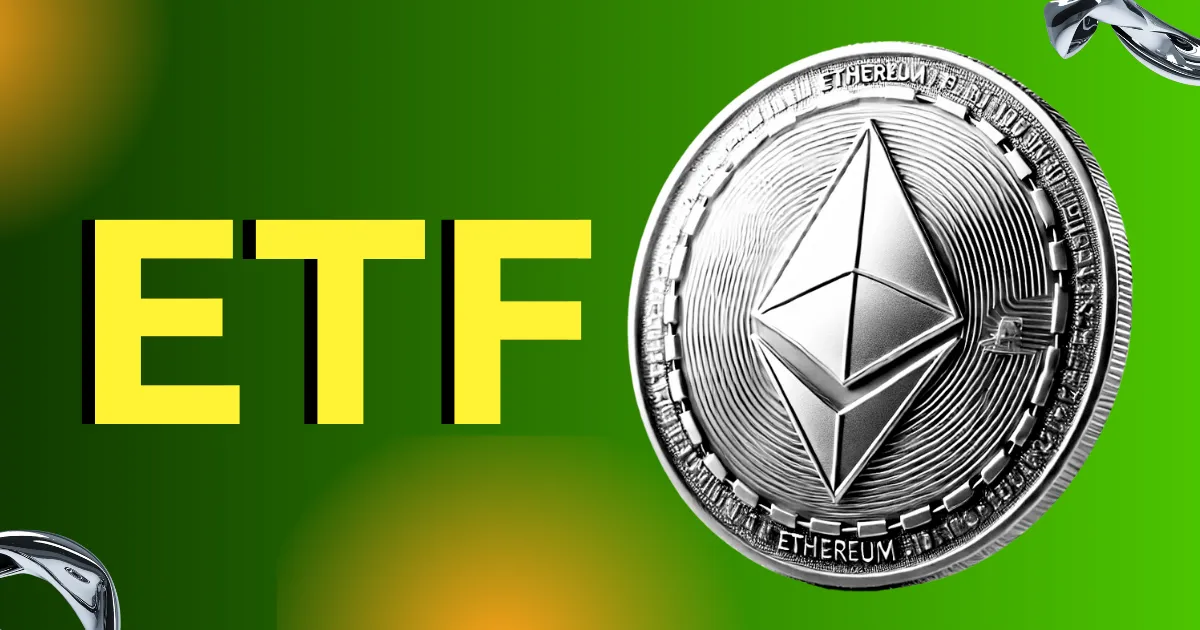
The launch of Ethereum spot exchange traded funds Exchange traded funds (ETFs) attracted significant market interest on July 23, with initial inflows surpassing $100 million. This is a notable change from the previous four days of outflows for U.S. spot Ether ETFs, which saw a total of $33.67 million in new investments.
This figure was, however, partly offset by an outflow of $120.28 million from Grayscale’s Ethereum Trust (ETHE). However, many crypto analysts believe that the Ethereum ETF will soon follow bitcoin’s path.
Ethereum ETF to Track Bitcoin
Katalin Tischhauser, head of investment research at Sygnum Bank and a former Goldman Sachs executive, predicted that Spot Ether exchange-traded funds could attract as much as $10 billion in assets under management in their first year.
She also predicted that Bitcoin ETFs could see inflows of $30 billion to $50 billion in their first 12 months, with Ethereum products likely following the same path.
Tischhauser noted that investing in Ethereum offers distinct advantages over Bitcoin. While Bitcoin is primarily viewed as a store of value, Ethereum’s value comes from revenue and cash flow. This makes Ether more relevant to traditional institutional investors compared to the perception of Bitcoin as “digital gold.”
Fee waivers to attract institutional investors
To attract institutional investors, several ETF issuers are waiving fees for their Ethereum spot funds. Franklin Templeton announced a 0.19% sponsorship fee, but will waive it for the first $10 billion in assets for six months. Meanwhile, Bitwise and VanEck will charge a 0.20% fee through 2025.
BlackRock revised its registration statement for its spot Ethereum ETF, ETHA, to include a 0.25% management fee. Grayscale launched its Grayscale Ethereum Mini Trust with the same 0.25% fee.
Ethereum ETFs Exclude Staking
The enthusiasm is, however, tempered by the lack of staking rewards of these ETFs. In May, BlackRock, Grayscale and Bitwise removed staking provisions from their SEC filings after discussions with the SEC.
As traditional investment institutions are limited by regulations and legal constraints, they can only invest through ETFs, without resorting to staking.
Also see: Crypto News Today: Bitcoin, Ethereum Brace for Volatility as Fed Holds Rates
Ethereum
SEC Hints It May Approve Ethereum ETFs at Last Minute, But ‘No Issuers Are Ready’
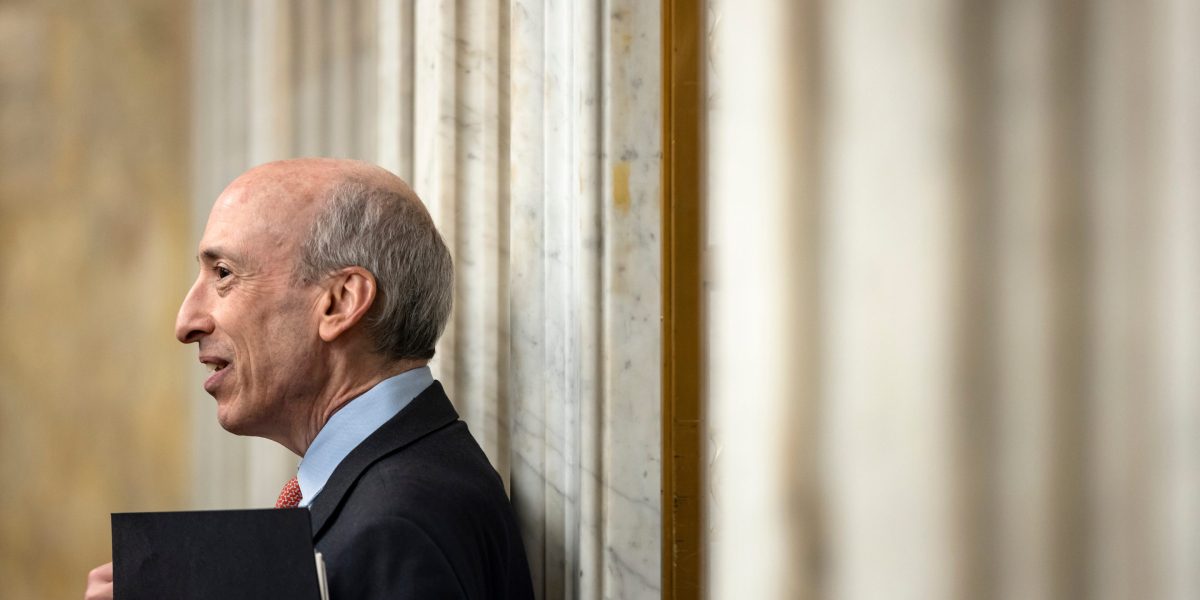
It sounded like an almost certain rejection from the Securities and Exchange Commissionbut just hours before the May 23 deadline to rule on VanEck’s application to launch an Ethereum spot exchange traded fundIt appears that the SEC may reconsider its decision.
CoinDesk First reported On Monday, the nine potential issuers that had filed to list and trade the ETFs were “abruptly” asked by regulators to update their 19b-4 filings on an expedited basis. A 19b-4 is what an exchange like the NYSE requires for new product introductions — in other words, the applicants and the exchange ask the SEC for permission to add the ETFs to their platforms.
Since rumors began circulating Monday afternoon, the price of Ether has climbed nearly 20%, trading near $3,750 as of 1:30 p.m. ET Tuesday.
It’s hard to believe that the SEC would do us a favor by approving the ETH spot ETF.
But politics is politics, and crypto has been winning the political battle for months.
Perhaps the Biden camp saw how many voters Trump could win over with a single pro-crypto comment and decided to change course.
— Jake Chervinsky (@jchervinsky) May 21, 2024
Since VanEck is the first exchange to file, its approval could hypothetically be a green light for others waiting to hear about their own 19b-4s. While rumors began circulating Monday that applications were being worked on, Bloomberg analysts updated their ratings from 25% to 75% approval.
But the news left issuers scratching their heads. Every issuer Bloomberg ETF analyst James Seyffart spoke to was “caught off guard by the SEC’s 180-degree turn,” he told Fortune. The agency reached out to filers for comment and updates just three days before the deadline, he said.
“This is not standard operating procedure, and everyone from issuers to exchanges to lawyers to market makers and more are scrambling to be ready for eventual approval and to meet SEC requirements,” Seyffart adds. The hasty nature of the pivot suggests it was likely a “political move,” the result of a “top-down decision” by the Biden administration, he speculates. “No issuer is ready,” he wrote on X.
It’s hard to believe that the SEC would do us a favor by approving the ETH spot ETF.
But politics is politics, and crypto has been winning the political battle for months.
Perhaps the Biden camp saw how many voters Trump could win over with a single pro-crypto comment and decided to change course.
— Jake Chervinsky (@jchervinsky) May 21, 2024
So far, Grayscale is the only potential issuer to post an update 19b-4 to the New York Stock Exchange website, for its application to transfer its Ethereum Mini Trust ETF. Meanwhile, Fidelity has abandoned its plan to put Ether in its ETF, according to a S-1 Update The filing was made with the SEC early Tuesday. In previous filings, the company had said it intended to “stake a portion of the trust assets” to “one or more” infrastructure providers, but now it “will not stake Ether” stored with the custodian.
Staking involves committing Ether to secure the network in exchange for a yield, which is currently around 3%, according to data from staking service Lido. Ark and Franklin Templeton have also considered staking in their applications. In today’s 19b-4 update from Grayscale, the company confirmed that it would not participate in staking. The fact that Grayscale highlighted this and Fidelity omitted it suggests that the SEC may have asked that staking be banned. Vance Spencer, co-founder of Business executivestold Fortune he believed the SEC’s last-minute requests included advice on staking.
Staking the underlying Ether in the ETF has been seen as a reason the SEC could reject the applications, with Chairman Gary Gensler expressing concern in March that digital assets using staking protocols could be considered securities under federal law. Staking could be “a significant complication,” Bitwise CIO Matt Hougan said. previously said Fortune.
However, even if the SEC approves VanEck’s 19b-4 on Thursday, it doesn’t guarantee clearance, as exchanges will need S-1 filings from issuers before the products can begin trading. When filing to launch a new security, an S-1 is the form that describes to potential investors and the SEC the structure of the asset, how it will be managed and, in this case, how it plans to mirror the performance of the underlying asset, namely Ether tokens.
But S-1 projects could take “weeks, if not months” to be approved, Seyffart said. written on X“That said, if we are correct and see these theoretical approvals later this week, that should mean that S-1 approvals are a matter of ‘when’ and not ‘if.’”
Recommended newsletter:
CEO Daily provides essential context for the information business leaders need to know. Every weekday morning, more than 125,000 readers trust CEO Daily for insights into leaders and their businesses. Subscribe now.
Fuente
Ethereum
FOMC Holds Interest Rates Steady, Bitcoin and Ethereum Prices Fall
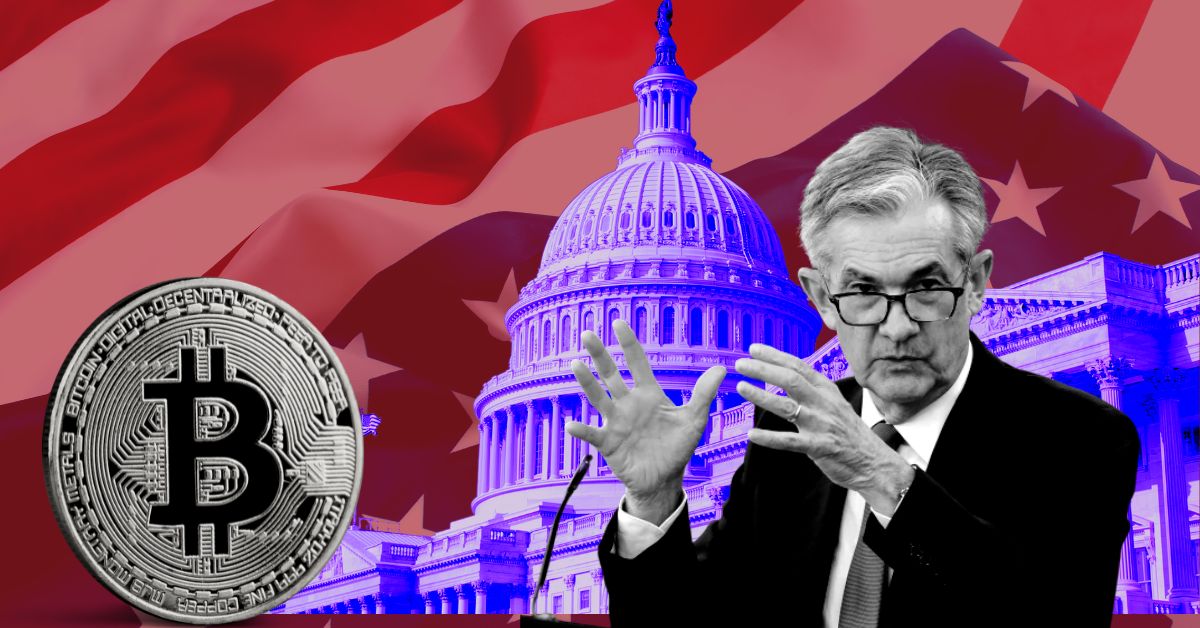
After Federal Reserve Chairman Jerome Powell said a September rate cut “could be on the cards,” stocks soared to session highs. The tech-heavy Nasdaq 100 climbed 3.3% and the S&P 500 climbed 2%. However, the king cryptocurrency Bitcoin (BTC) fell 1.3% to $66,088, and Ethereum (ETH) fell about 1.11% to $3,313. Over the past 24 hours, the global cryptocurrency market cap also fell 0.71% to $2.39 trillion.
However, market analysts believe that this is a short-term decline, as Bitcoin and other cryptocurrencies, despite being in a bearish situation, are showing bullish signals. Although BTC is still struggling to break the $70,000 mark, it will be interesting to see how BTC will react in August before the rate cuts.
Federal Reserve Decision
On July 31, the U.S. Federal Reserve concluded a two-day meeting of the Federal Open Market Committee (FOMC) by choosing to keep benchmark interest rates unchanged at 5.25%-5.50%, in line with Wall Street expectations. The decision marked the eighth consecutive meeting without a rate change.
Towards a market rebound?
According to SantimentThe FOMC’s decision to maintain current interest rates led to an initial decline in cryptocurrency prices. Traders were hoping for a rate cut, which hasn’t happened since March 2020. A future rate cut could signal bullish trends for stocks and cryptocurrencies, potentially boosting markets for the remainder of 2024. Despite the initial sell-off, markets are likely to stabilize unless another major event impacts the cryptocurrency sector.
In the meantime, aggressive accumulation by bulls and increasing negative sentiment among the crowd could set the stage for a substantial market rebound.
Understanding the broader impact
Despite the anticipation surrounding the FOMC meeting, the impact on cryptocurrencies was limited as the pause on rates had already been factored into prices. Previous Fed decisions have shown minimal major impact on Bitcoin prices.
Historically, FOMC actions affect all asset classes. In 2020 and 2021, Bitcoin and other altcoins soared when the Fed cut rates to zero, only to reverse course in 2022 when rates began to rise. Investors moved trillions of dollars into lower-risk assets, with money market funds amassing over $6.1 trillion, earning an average return of 5%.
Furthermore, Bitcoin’s immediate resistance is noted at $66,852, with support at $65,000. The RSI is signaling oversold conditions, suggesting further declines are possible if the price falls below $65,900.
Investors are now closely watching the FOMC meeting for clues about inflation and economic growth, which could influence Bitcoin’s next move.
-
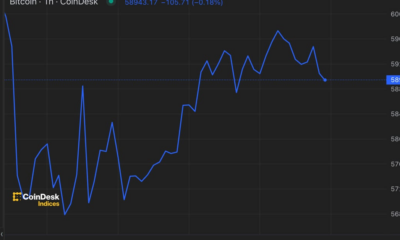
 News1 year ago
News1 year agoBitcoin (BTC) price recovery faces test on non-farm payrolls
-

 Bitcoin12 months ago
Bitcoin12 months ago1 Top Cryptocurrency That Could Surge Over 4,300%, According to This Wall Street Firm
-

 Altcoins12 months ago
Altcoins12 months agoOn-chain data confirms whales are preparing for altcoin surge with increased buy orders
-

 Bitcoin12 months ago
Bitcoin12 months agoThe US government may start accumulating Bitcoin, but how and why?
-
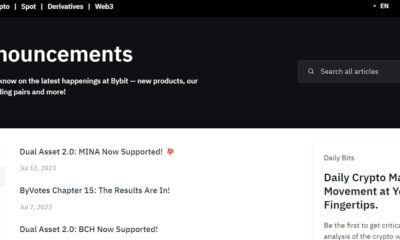
 News1 year ago
News1 year agoNew ByBit Listings for 2024: 10 Potential Listings
-

 News1 year ago
News1 year ago11 Best Crypto TikTok Accounts & Influencers in 2024
-

 Altcoins1 year ago
Altcoins1 year agoMarket giants have taken action!
-

 News1 year ago
News1 year ago11 Best Shitcoins to Buy in 2024: The Full List
-

 Ethereum1 year ago
Ethereum1 year agoTop Meme Coins by Market Capitalization in 2024
-

 News1 year ago
News1 year ago1.08 Trillion SHIBs Dumped on Major Crypto Exchange, What’s Going On?
-

 News1 year ago
News1 year ago19 Best Crypto Games to Play in 2024
-

 Altcoins1 year ago
Altcoins1 year agoAltcoin Recommended by Crypto Expert for Today’s Portfolio





